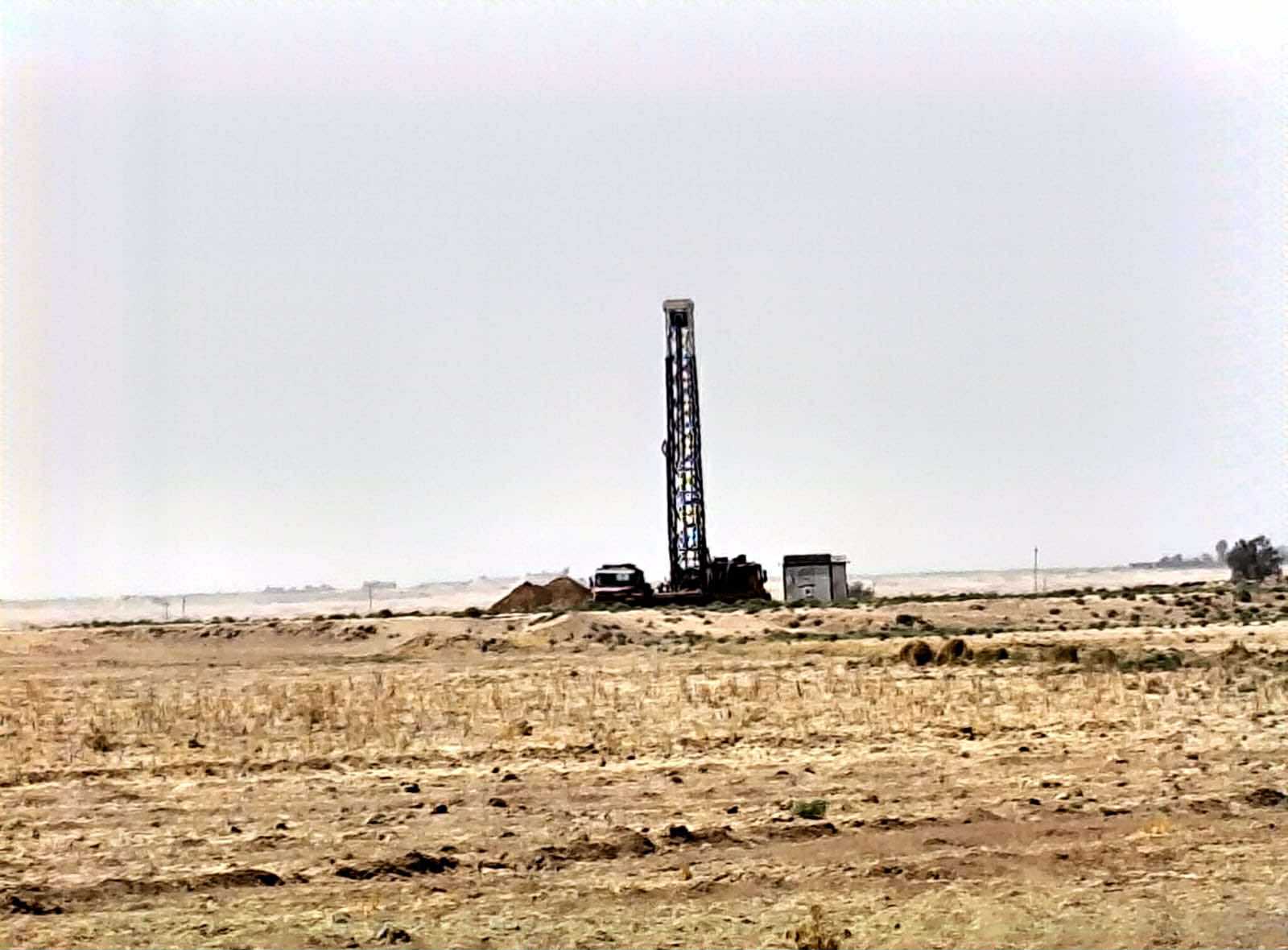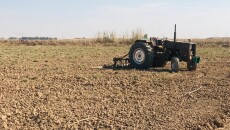Several farmers from Mansour village in Daquq district of the northern, oil-rich, multiethnic province of Kirkuk have protested against the drilling of water wells on their agricultural lands, which have been inactive for years due to unresolved ownership disputes.
The protests arose after farmers dug water wells on agricultural lands situated between Mansour and Al-Asri villages, south of the district, "against instructions and legal procedures" issued by the government.
"These lands have been left uncultivated for eight years due to disputes between Kurdish and Arab farmers over ownership. Although both parties signed commitments in court, the Arab farmers did not comply," stated Mohammed Ibrahim, the headman of Mansour village, to KirkukNow, emphasizing that the Kurds claim rightful ownership of the lands.
The 1,750 donums (438 hectares) of land in the area are part of the 600,000 donums (150,000 hectares) in the Haftargar area and other regions in Daquq where ownership disputes persist. The resolution of these disputes hinges on the enforcement of Article 140 of the Iraqi Constitution in 2005, which has yet to be implemented.
Kurdish farmers plan to lodge complaints against the drilling of water wells on their lands, but efforts by a KirkukNow reporter to obtain comments from Kurdish farmers on the matter were unsuccessful.
In the 1970s and 1980s, the Revolutionary Command Council (dissolved) issued a series of decisions regarding agricultural lands, especially in the disputed territories, including distributing the lands to the ministries, which in turn redistributed them to farmers under contracts.
According to estimates by lawyers in property dispute cases and farmers themselves, no less than 300,000 dunams of agricultural lands were confiscated from their owners.
A source in the Kirkuk Water Resources Department informed KirkukNow that individuals drilling water wells against regulations will face imprisonment and confiscation of drilling equipment.
He clarified that drilling wells on agricultural land is prohibited if the land is irrigated.
However, drilling wells on rain-fed lands is allowed under two conditions: first, obtaining approval from the Department of Agriculture, and second, obtaining approval from the Department of Water Resources. Engineering teams then carry out the drilling using their own equipment.
The return of seized lands to its owners was one of the most complicated issues in the multi-ethnic, oil-rich Kirkuk province and other disputed territories, pending for 20 years. This has led to several clashes between Kurdish, Arab and Turkmen farmers.
The northern, oil-rich, ethnically mixed province of Kirkuk is home to about 1,77 million Kurds, Turkmen, and Arabs. Located 238 kilometers north of Baghdad, Kirkuk has long been at the center of disputes between the federal government in Baghdad and the Erbil-based Kurdistan Regional Government KRG.
The region has experienced tension and clashes among farmers on multiple occasions due to unresolved disputes over agricultural land ownership. This is despite the law passed by the Iraqi parliament requiring the return of at least 300,000 dunoms in Kirkuk to their original owners after being confiscated for 50 years.






